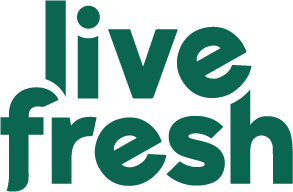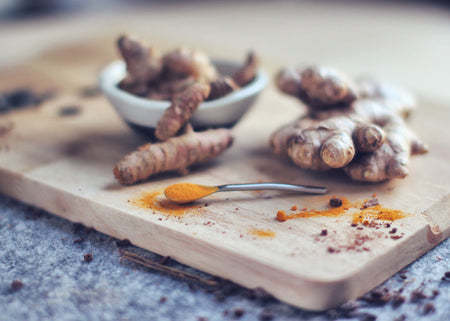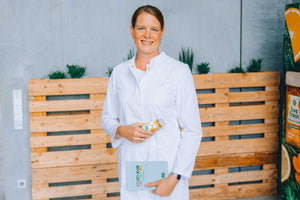Nie zuvor waren Nachhaltigkeit, Umweltbewusstsein und gesunde Ernährung derartig wichtige Elemente unserer Gesellschaft. Wer sich etwas intensiver mit diesen Themen auseinandersetzt, erkennt, dass es häufig gar nicht so einfach ist, die Wünsche nach Nachhaltigkeit mit gesunder Ernährung zu verknüpfen. Wir haben uns angesehen, welche Punkte in den verschiedensten Regionen der Welt für besonders hohe Lebenserwartung verantwortlich sind. Daraus ausgehend haben wir für dich zehn Tipps zusammengestellt, wie du dich nachhaltig gesünder ernähren kannst.
1: Plant-based food
Whether in Asia, Central America or in some parts of Africa. Wherever people are particularly old, there is a strong focus on a plant-based diet. This does not mean that eating meat automatically has negative consequences for health. As is so often the case in life, it is important to find the right balance. If you want to eat as healthily as possible, you should get 80 to 90 percent of your food from plant-based products. This predominantly vegetarian diet also perfectly complements sustainability and environmental protection. If you also make sure to source regional and seasonal products wherever possible, you have already taken a huge step towards an environmentally conscious and healthy diet.
2: Fish before meat
Meat and sausage products are considered the biggest CO2 producers in the food production sector. Fish, on the other hand, has a significantly lower impact on the environment. However, you should make sure you choose the right fish. It should be untreated and pesticide-free. You can also make sure you buy certified fish. For example, the MSC seal for wild fish shows that the fish does not come from large fishing fleets and thus sets an example against overfishing. The Naturland seal, on the other hand, distinguishes products from organic fish farming. The Bioland seal and the ASC certificate also identify sustainable fish products.
3: Whole grain products
This point has been known for a long time. Whole grain products create a greater feeling of satiety and provide important fiber. For a long time, they were considered less tasty. Nowadays, many wholegrain products are indistinguishable in terms of taste. The consumption of whole grains also has a particularly positive effect on the environment. This is because individual work steps can be dispensed with during production, which is why significantly less energy and resources are consumed. In addition to wholemeal bread and wholemeal pasta, buckwheat and quinoa are particularly noteworthy. Although brown rice is a good alternative to conventional rice, it requires a lot of water to produce.
4: Only enjoy dairy products in moderation
Milk and dairy products are considered to be one of the most important sources of protein. Its high calcium content and some essential amino acids also make milk an important part of a healthy diet. However, keeping cows is considered to be particularly harmful to the environment. We therefore recommend reducing the consumption of dairy products to a minimum, but not necessarily avoiding them altogether. If you want to eliminate milk from your diet completely, you should choose plant-based substitutes instead to cover your protein and calcium requirements.
5: Regionality scores points!
Regionality is one of the most important buzzwords on the way to a more sustainable diet. In recent years, there has been an increasing trend towards cheap products from all over the world. The environmental impact of long transportation routes is immense. We recommend avoiding products that are not produced in the EU as much as possible. Of course, products from the immediate vicinity are particularly preferable. A good way to support regional businesses is to visit farmers' markets. Here you can buy fruit and vegetables from the region. In most cases, these are also particularly low in harmful substances and pesticides. If you are put off by high prices, we have more good news for you. As there are no middlemen, farmers are usually able to offer many products at the same price (or even cheaper) than in large supermarkets.
6: Seasonality
In addition to regionality, seasonality is particularly important. We are used to being able to buy the full variety of fruit and vegetables at any time of year. However, this freedom comes at the expense of the environment. Products that are not in season either have to be transported halfway across the world or grown in greenhouses. These greenhouses consume a lot of energy and water. The balance is particularly negative when products are neither regional nor seasonal. One example of this is the popular strawberries from Spain. Of course, it is nice to be able to buy fresh, sweet strawberries at Christmas. However, the strawberry industry in southern Spain uses so much water that the reservoirs are drying up and long-term damage to the entire Spanish agricultural sector and nature cannot be ruled out.
7: Organic products and organic farming
Fruit and vegetables are usually treated with all kinds of pesticides and toxins to keep pests away and look as attractive as possible. However, these substances not only harm the environment by interfering with the balance of the ecosystem, but can also have an impact on your body. We therefore recommend using organic products from organic farming. You can best recognize these by the corresponding quality seals.
8: Sustainable drinking
In Central Europe, we are lucky to have very good drinking water in large quantities. Instead of buying bottled water and sodas, you can drink water from the tap. If you still fancy a refreshing drink, we recommend buying products made from recycled materials. Glass bottles or products made from 100 percent recycled PET are preferable here.
9: Eating healthily by doing without
Every healthy diet also involves a certain amount of sacrifice. This most often applies to small snacks and treats. A small piece of chocolate here, a gummy bear there and a delicious ice cream with whipped cream at the end. Of course, sweets and snacks are extremely satisfying and can be a real balm for the soul. However, they are just as unhealthy and harmful to the body as they are to the environment. So if you occasionally give up sweets between meals, you'll be doing yourself and our world a big favor.
10: Avoid food waste
Countless tons of food are thrown away every day in this country. In the private sector, poor planning is primarily responsible for this waste. If you think about which products you actually need in the coming days and go shopping with a list, you can easily counteract this. If you still find yourself in a situation where you have bought too much food, we recommend that you process and freeze it. If this is not possible, many stores and associations now offer the option of collecting food from a distribution list. People in need can drop by at any time and receive food that would otherwise have ended up in the garbage can at no cost.
We at LiveFresh take the future into our own hands today and try to make our products and processes even more sustainable every day. You can find out what we are doing to protect our environment here➤ LiveGreen
Our juice cleanse helps you get started on a healthier diet for the long term. Put your body in shape with a juice cleanse reset, start a more conscious lifestyle and feel better in the long term.➤ 3,5 or 7 days juice cleanse
Das könnte dich auch interessieren









